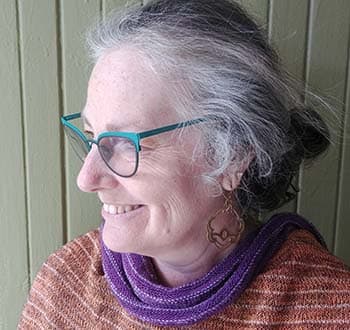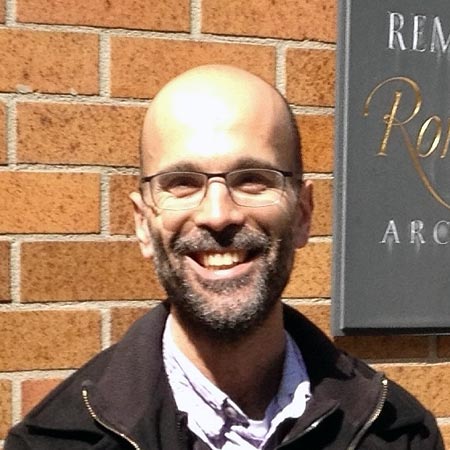Program Leads
Karen Gold, PhD

Karen Gold is a Program Lead and Instructor in the Narrative-Based Medicine Program at Continuing Professional Development in the Temerty Faculty of Medicine, University of Toronto.
Her teaching is informed by 25+ years as a clinical social worker and educator as well as her longstanding experience with arts and narrative in professional practice. Early in her career she was drawn to narrative therapy as a clinical modality and to illness memoirs as a teaching tool.
In 2010, Karen was inspired by the emerging narrative medicine movement to return to school to explore narrative in healthcare. Drawing from the fields of narratology (the study of stories), arts-based inquiry, and auto-ethnography, her dissertation examined writing by practitioners and she graduated summa cum laude with a doctorate from Tilburg University in The Netherlands. While working towards her PhD, Karen did advanced narrative medicine training at Columbia University and certified as a writing workshop leader (Amherst method).
For the last ten years Karen has been leading narrative-based medicine sessions for clinicians, educators, students, and patients. This includes: reader’s theatre on clinical communication, reflective writing for clinicians, therapeutic writing for clients, poetry for therapists, and writing and well-being for artists. She has introduced narrative methods into clinical and classroom settings to promote communication and collaboration and to enhance understanding of the experiences of patients, families and clinicians.
As the Inter-professional Education Lead at Women’s College Hospital in Toronto, she developed narrative-based programs to promote collaborative learning and person-centered care. She is a long-time contributor to the Health, Arts, & Humanities Program at the University of Toronto and developed the narrative healthcare unit for their inter-professional student certificate.
She has published and presented on health humanities, narrative pedagogy, life writing, and poetic inquiry. Recent publications include a reflective essay on poet Mary Oliver and a chapter on the relational dimensions of narrative medicine in The Sage Handbook of Social Constructionist Practice.
Karen is a visual artist and registered social worker/psychotherapist in freelance practice. She lives in Toronto with her family and muses on narrative at Art of the Story.
Damian Tarnopolsky, PhD

Damian Tarnopolsky is a Program Lead in the Narrative-Based Medicine Program at Continuing Professional Development in the Temerty Faculty of Medicine, University of Toronto.
His introduction to the field came at Massey College, where as the Barbara Moon/Ars Medica Editorial Fellow he taught creative and reflective writing to medical students and residents. After earning his Narrative Healthcare certificate with the Health, Arts and Humanities program at the University of Toronto, he taught courses in narrative competence at the Centre for Faculty Development at St. Michael’s Hospital, and ran A Rooster for Asclepius, a health-related writing group. He currently teaches in the Narrative-Based Medicine Digital Certificate Program and leads The Mudroom, a creative writing workshop for health practitioners. He is also writer-in-residence with the Health, Arts and Humanities program.
His most recent creative work, The Defence, won the 2019 Voaden Prize, a national playwriting competition, and has been presented as a staged reading by the Kingston WritersFest and in Toronto by Junction Reads. His novel Goya’s Dog, the story of a dyspeptic British painter’s unhappy World War II exile in Toronto, was nominated for the Commonwealth Writers’ Prize for Best Book and the Amazon.ca First Novel Award. Lanzmann and Other Stories appeared with Exile Editions and was nominated for the ReLit award. It was praised in the Toronto Star as “at turns surreal, serio-comic, whimsical and erotic,” and by eye weekly for its “authority, Nabokovian play and bawdiness” and “perfect, twisty sentences.” His short fiction has appeared in The Antigonish Review, subTerrain, Audeamus, and elsewhere, and has been twice nominated for the Journey Prize, as well as the CBC Literary Award.
Damian Tarnopolsky studied modern literature at Oxford University and writing at the Humber School for Writers, where he was mentored by Mavis Gallant. He received his B.A. and Ph.D. from the University of Toronto, where he specialized in the later modernist novel and was awarded the President’s Teaching Academy award. His articles and reviews appear in the national press and online in such publications as The Walrus, the Literary Review of Canada, Partisan, and The Globe and Mail, and for a time he was the Managing Editor of the Toronto Review of Books. He is currently the proprietor of Slingsby and Dixon, an editorial communications firm in Toronto, where he lives with his family.
Guest Faculty
Allan Peterkin, MD, FCFP, FRCP

Allan Peterkin completed a degree in English and French literature before completing medical school at the University of Manitoba.
He went on to complete residencies in psychiatry and family medicine at McGill, all the while working on his own creative writing projects. As a resident, he published “Staying Human During Residency Training-How To Survive and Thrive After Medical School” (now in its 7th edition and 1st UK edition). Dr Peterkin is currently a full Professor of psychiatry and family medicine at the University of Toronto, where he heads the Program in Health, Arts and Humanities. He also serves as Humanities Faculty Lead for the Medical Education Portfolio: the MD Program, Post Graduate Medical Education and Continuing Professional Development.
He was a co-founder of Creating Space-Canada’s annual medical humanities meeting, now in its 12th year., and was instrumental in founding the Canadian Association for Health Humanities. He has always been interested in the interface between medicine and storytelling and co-led a therapeutic writing group for men and women living with HIV for 20 years. A collection of these patients’ narratives was published as “Still Here-a Post-cocktail Aids Anthology” (Life Rattle Press). This work led to further training in narrative-based medicine in the US and UK and he was a pioneer in bringing narrative approaches in medicine to Canada.
Dr Peterkin has written/edited 14 books on subjects as varied as cultural history, human sexuality, physician health and narrative medicine.
His humanities titles include : “Portfolio to Go-1000 Prompts and Provocations for Clinical Learners”, “Health Humanities in Postgraduate Medical Education” with Dr Anna Skorzewska, and “Keeping Reflection Fresh-a Practical Guide for Clinical Educators”, with Pamela Brett-Maclean PHD.
He is also an author of 5 picture books for children. Recent titles include “The Flyaway Blanket” and “Peacock and Sketch”.
Dr Peterkin was a co-founder of the award-winning Canadian literary journal Ars Medica and has been an editorial consultant to CMAJ and Medical Humanities(BMJ).
His poetry, journalistic pieces and creative non-fiction have appeared in journals and magazines in the US, Canada and the UK.
He is delighted to be a Program Director for the CPD program in Narrative-based Medicine which has trained colleagues from all over the world. This program continues to create new opportunities for finding renewal and community by celebrating the stories shared by students, colleagues, patients and educators from multiple clinical and arts-based disciplines.
Michael Roberts, MD, FCFP

Michael Roberts, is an Assistant Professor, Health and Humanities Lead and Professional Development Coordinator in the Department of Family and Community Medicine at the Faculty of Medicine, University of Toronto. An Innovator and Medical Education Scholar in the use of reading and writing to encourage reflection and resilience, Dr. Roberts has facilitated Narrative Medicine training through Faculty Development locally and nationally within the field of Family Medicine. He is co-author with Dr. Allan Peterkin, “Narrative Means to Professional Ends: New Strategies for Teaching CanMeds in Canadian Medical Schools” (CFP 2012). Dr. Roberts was recently recognized for his contributions to Mentorship, Scholarship and Curriculum Development as a recipient of the Award of Excellence from the College of Family Physicians of Canada.
Faculty Disclosure
It is the policy of University of Toronto, Faculty of Medicine, Continuing Professional Development to ensure balance, independence, objectivity, and scientific rigor in all its individually accredited or jointly accredited educational programs. Speakers and/or planning committee members, participating in University of Toronto accredited programs, are expected to disclose to the program audience any real or apparent conflict(s) of interest that may have a direct bearing on the subject matter of the continuing education program. This pertains to relationships within the last FIVE (5) years with pharmaceutical companies, biomedical device manufacturers, or other corporations whose products or services are related to the subject matter of the presentation topic. The intent of this policy is not to prevent a speaker with a potential conflict of interest from making a presentation. It is merely intended that any potential conflict should be identified openly so that the listeners may form their own judgments about the presentation with the full disclosure of facts. It remains for the audience to determine whether the speaker’s outside interests may reflect a possible bias in either the exposition or the conclusions presented.
